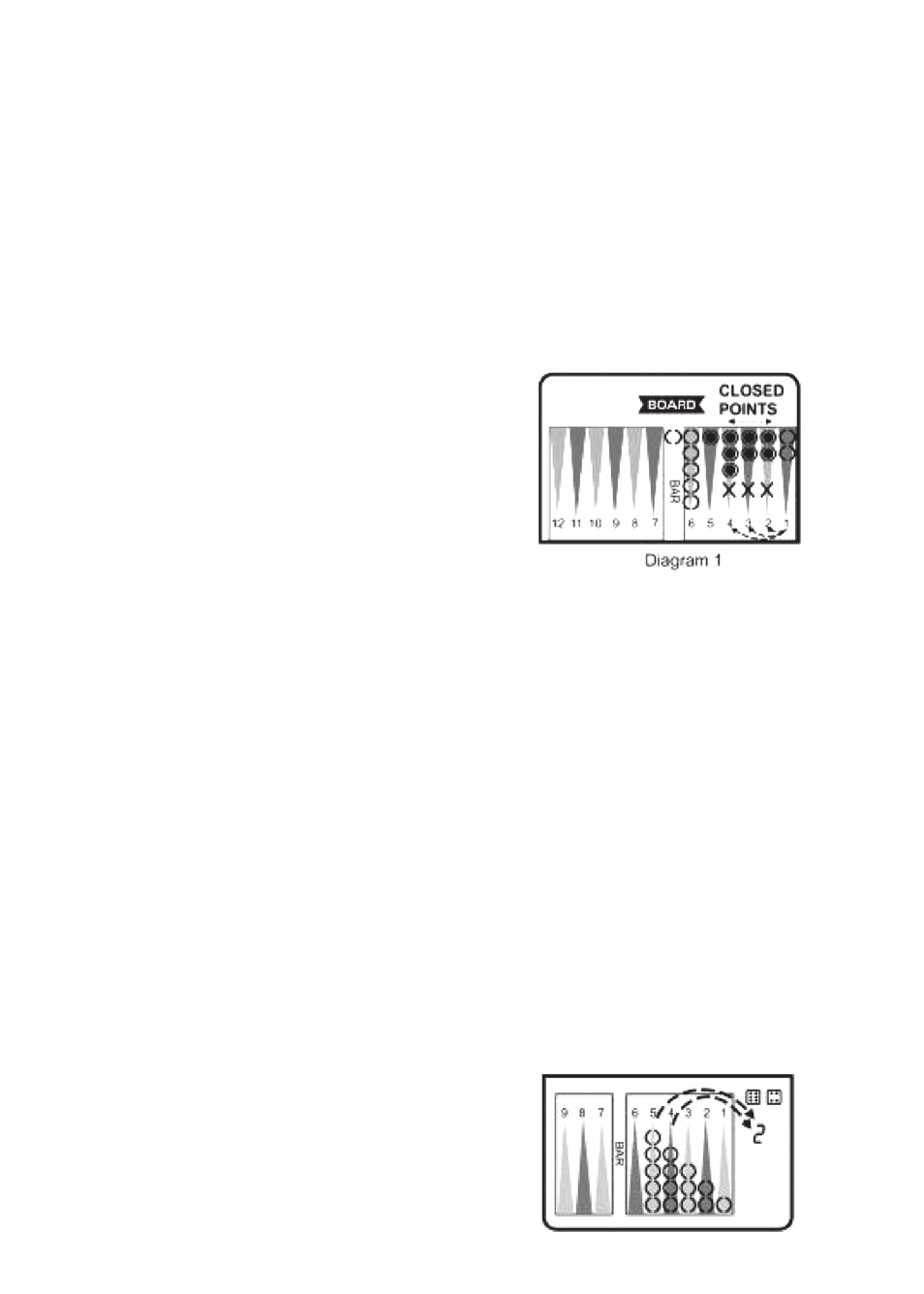EXCALIBUR ET477 Einstein Touch Backgammon User Manual
Page 4

• Each player moves his checkers
from his opponentʼs inner home table
(the upper right quadrant on your
screen) to his own inner home table (the
lower-right quadrant on your screen).
• When you have two or more
checkers on a point (a closed
point), your opponent is not
permitted to land on that point.
• When you land on a point that is
occupied by one of your opponentʼs
checkers, that checker of your
opponentʼs is bumped off the point
and is placed on the bar in the middle.
• When you throw doubles, you
can make four moves total. You
can make four moves with the
same checker or move any other
checkers in any combination possible.
• You may move to any point that is:
1) empty;
2) occupied by one or more of your
own checkers or
3) occupied by only one of your
opponentʼs checkers. Your opponentʼs
checker is then removed to the bar.
• When all 15 checkers are in a
playerʼs inner home table, the player
can begin to bear off the checkers.
• If one of your checkers has been
placed on the bar, you must re-
enter it into your opponentʼs inner
home table by throwing the dice
and placing the checker on one of
the corresponding points (1-6). You
must re-enter your checker before
you may move any of your other
pieces. To move the checker from
the bar back to the point, see diagram
1 below. In diagram 1, you can get
off the bar if you land on point one,
five or six. Remove your opponentʼs
checker only if you land on point five.
• When all 15 pieces are in a playerʼs
inner home table, the player must
remove (or bear off) the pieces from
the point. If a number thrown is
higher than any points occupied by the
playerʼs pieces, then player may bear
off from the highest occupied point.
To bear off the checkers, see diagram
2 on the following page. In diagram
2, if a six and a four are rolled,
a checker from the four-point is
removed. Since there are no checkers
on the next highest point, in this
case the five-point, is removed.
4
